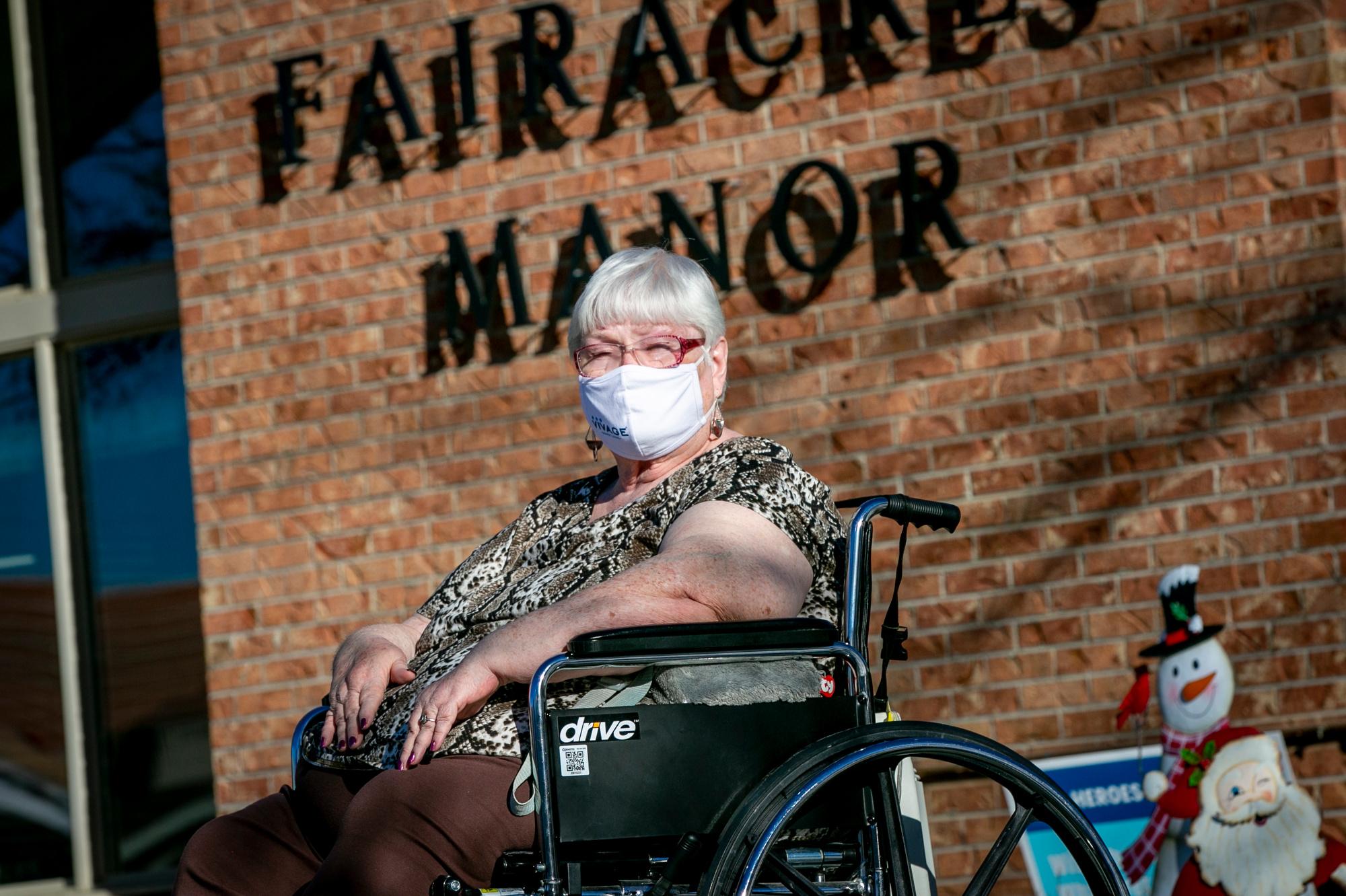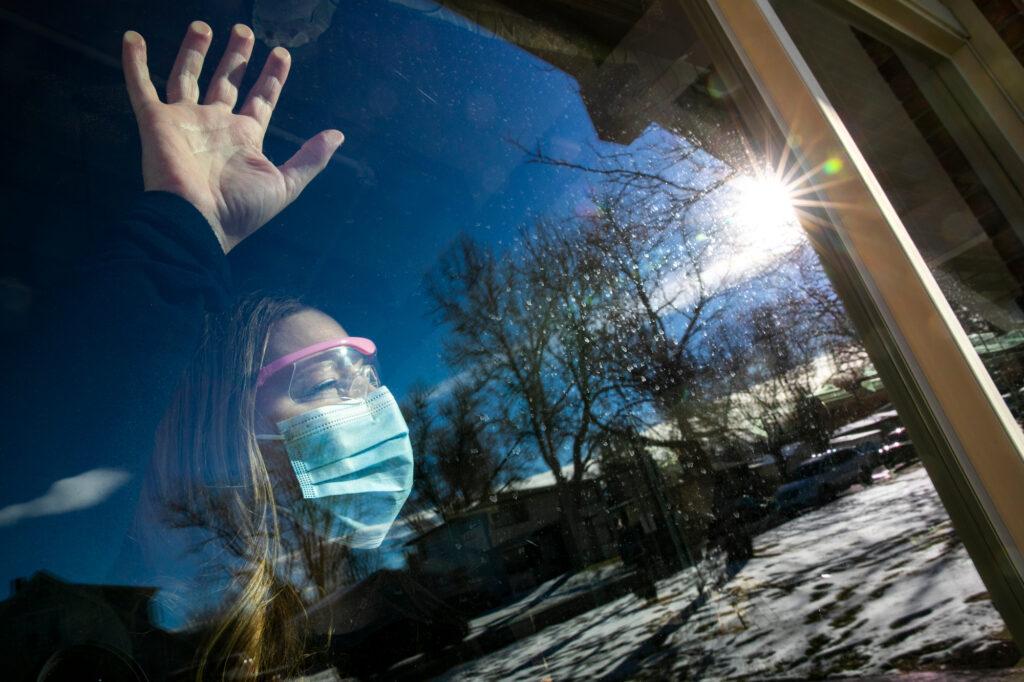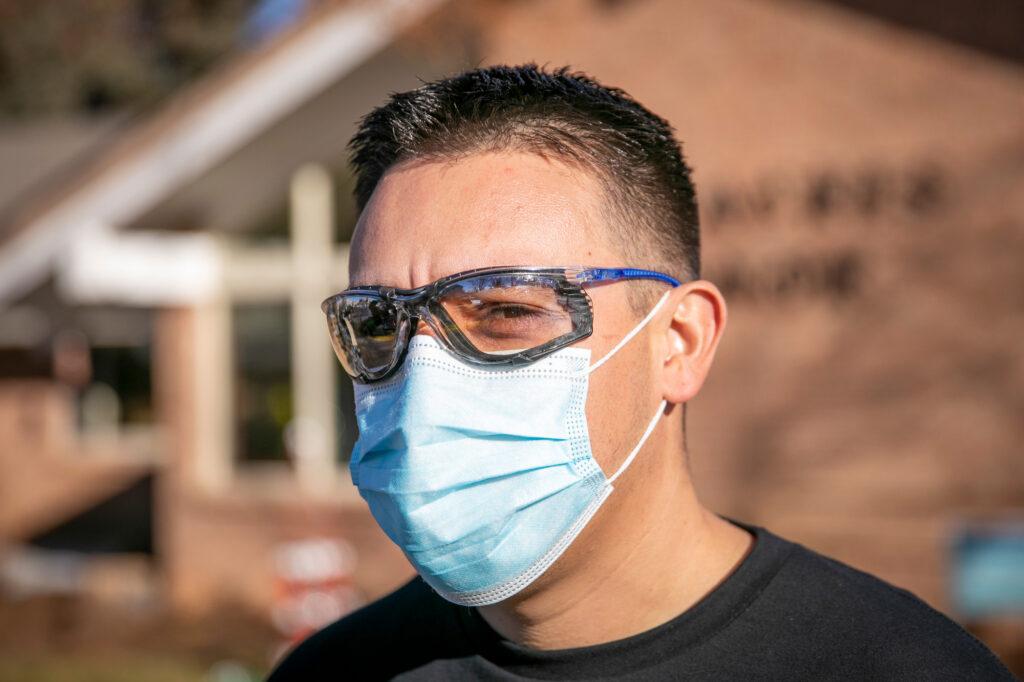
Like most Colorado skilled nursing homes, Fairacres Manor in Greeley has had a harrowing year.
In March, residents there began succumbing to COVID-19. At least 16 of them got the virus and 13 died with confirmed or suspected cases, according to data from the state health department.
Now Fairacres is in the midst of a smaller outbreak that started at the end of November, but has led only to infections, not deaths.
It’s one of the reasons Sharon Peterson will be rolling up her sleeve when pharmacy workers from CVS arrive Tuesday morning with vials of the Pfizer vaccine to inject into residents and workers. Peterson, who has respiratory problems and uses a wheelchair to get around, was born 75 years ago, shortly after the flu shot became available on a large-scale.
“I’m looking forward to it,” she said, noting that she was among the early takers of the influenza vaccine and has continued to get innoculated over the years. “The flu shots helped me not get it so bad.”

Nursing homes, which have been one of the epicenters of the pandemic in Colorado, receive priority for the vaccine after frontline healthcare workers. While some residents, their families and staff are reluctant to get the vaccine because of the lack of long-term data about side-effects and effectiveness, many at Fairacres are anxious to get the process started.
Those taking the vaccine will get a second dose in a few weeks and will then have to wait a couple more weeks to be protected from the virus.
Nurse April Lozano took a job at Fairacres 15 years ago and since then, her two children have joined the staff. She said she also considers the residents her family and sees the vaccine as a way to put an end to so much loss.
“For me to get the vaccine and to see the residents get the vaccine is an honor,” she said. “And I almost feel like it’s a duty.”
A duty, she said, to protect those she cares deeply about.
Ben Gonzales, an administrator at Fairacres, said it felt like a whirlwind when the virus hit the nursing home.
“When we saw our first case, our lives got flipped upside down,” Gonzales recalled.
He said one of the toughest parts early on was calling families after the state took extraordinary action to try to tamp down on the virus.
“I had to notify as families and loved ones and residents that we were having to shut our doors,” Gonzales said.
For residents, it has meant a lot of isolation in their rooms, no family visits, no communal dining and no more musical performances by local high schools.

Nurse April Lozano said masks and goggles replaced smiling faces and she can’t even give residents a hug to comfort them. She remembers one spouse in particular who used to come in every day.
“He’d sit by her side and he was no longer able to do that.”
Lozano said since he couldn’t go into the home, he’d pull up a chair and sit by her window.
“It just breaks my heart,” she said.
Christmas has also lacked the cheer of years past. Sharon Peterson said last December, residents went on a bus trip to look at a house decked out with Christmas lights.
“They go on and off to music...and they're just beautiful.”
Peterson said she hoped the vaccine and the new year will mean a return to the things the residents used to look forward to.
As of December 23, more than half of licensed nursing homes in the state have had outbreaks, accounting for more than 1,100 of Colorado’s more than 4,400 deaths of people with COVID-19. And that’s not counting assisted living facilities, rehab settings or other congregate living centers for seniors.
As for the Fairacres community, they hope that by March of next year, their world will look nothing like it did a year ago.









